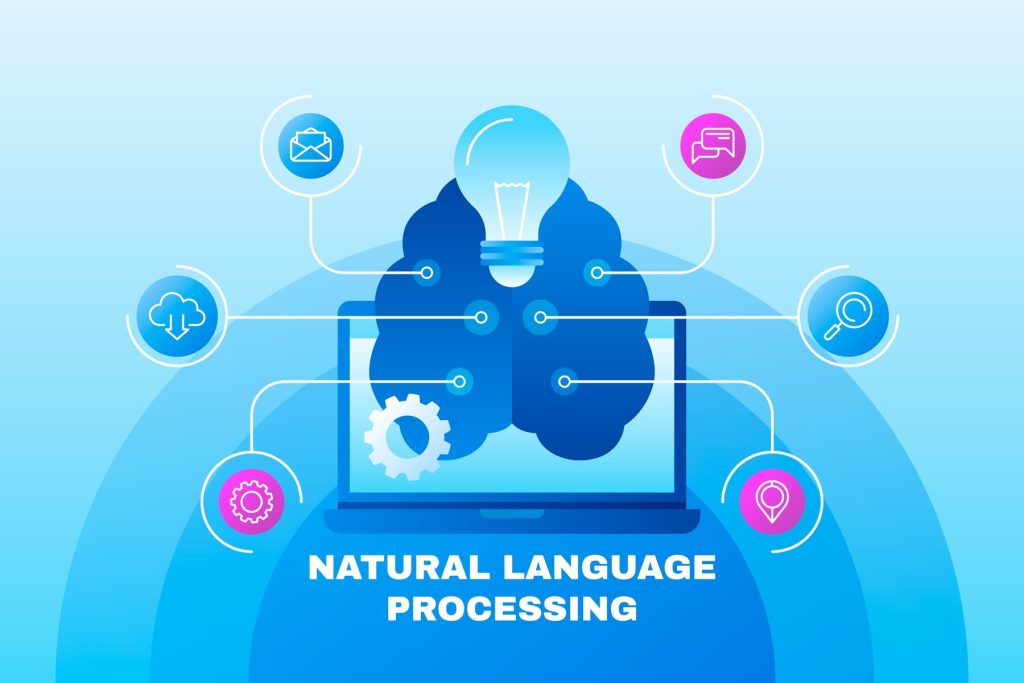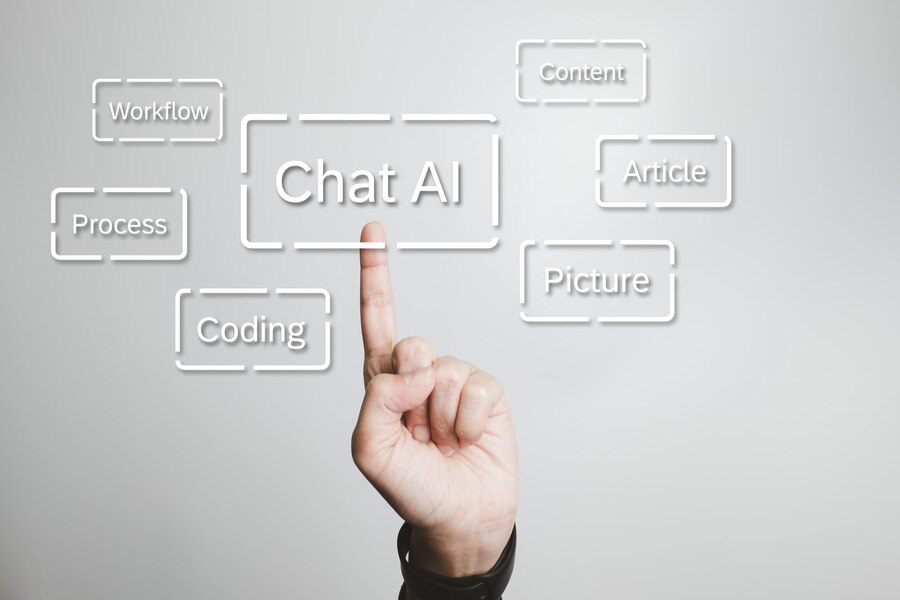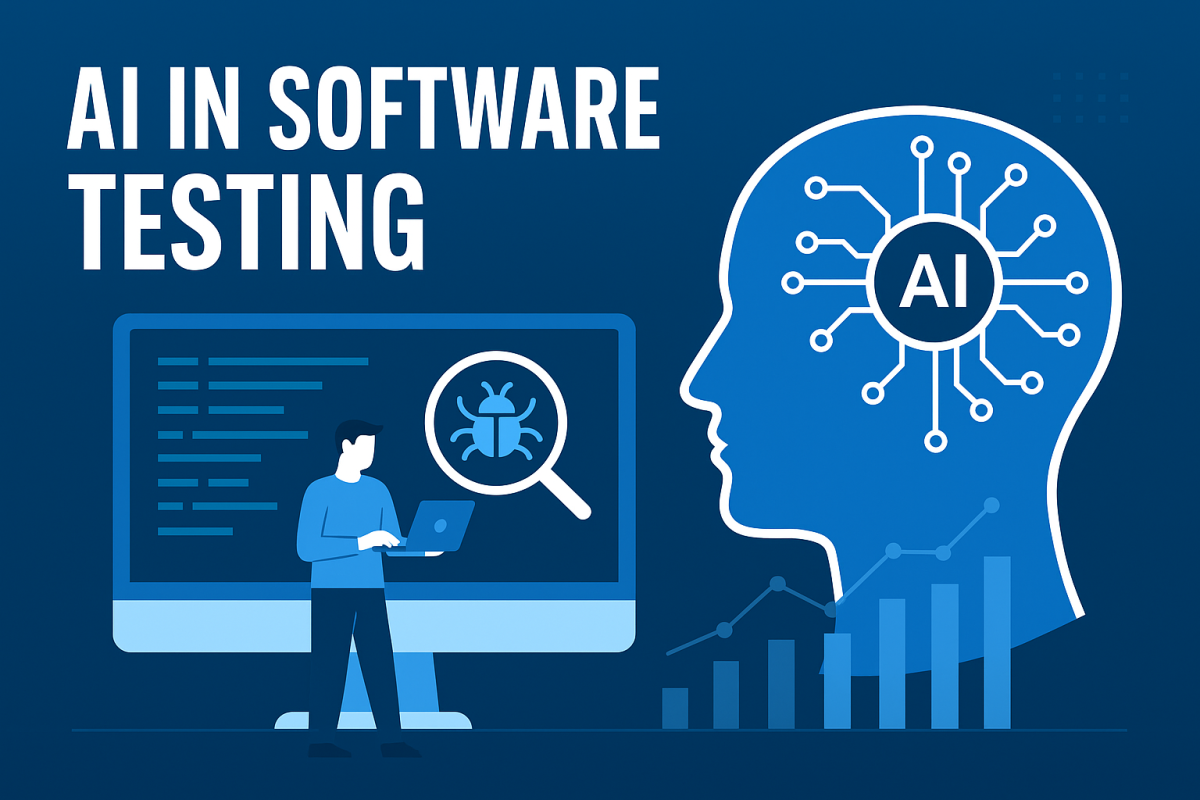Natural Language Processing (NLP)
Transforming Human-Machine Interaction
Natural Language Processing (NLP) stands at the forefront of artificial intelligence (AI), reshaping the way computers understand and engage with human language. In an era dominated by digital transformation, NLP emerges as a fundamental technology, facilitating seamless communication between humans and machines across various industries. From deciphering complex medical records to enhancing customer service interactions, NLP’s influence extends far and wide, revolutionizing traditional processes and opening doors to unprecedented innovation.

Current Applications of NLP
- Machine Translation: NLP has revolutionized language translation, powering services utilized by translation agencies, social media platforms, and chatbots. Moreover, Google Translate, enabling accurate translations in over 100 languages, fosters global connectivity and breaks language barriers.
- Chatbots: By leveraging NLP, chatbots offer personalized customer service solutions, consequently enhancing user experience and operational efficiency. Additionally, companies utilize NLP-powered chatbots to provide instant support, resolve queries, and even facilitate transactions. As a result, customer interactions are transformed into seamless experiences, fostering greater satisfaction and loyalty.
- Text Summarization: NLP algorithms automate text summarization, thereby empowering professionals to extract key insights from vast volumes of textual data. Furthermore, tools like Summarizer.io leverage NLP to generate concise summaries of articles, research papers, and business reports. Consequently, this enables efficient information consumption in today’s data-driven world, streamlining decision-making processes.
- Sentiment Analysis:
By facilitating sentiment analysis, NLP enables businesses to gauge public opinion and adapt marketing strategies accordingly. Additionally, social media monitoring tools utilize NLP to analyze user-generated content and track brand sentiment in real-time. As a result, organizations are empowered to make data-driven decisions and improve brand perception. - Voice Assistants: Powered by NLP, voice assistants such as Siri, Alexa, and Google Assistant facilitate natural language interactions. By leveraging NLP algorithms, these virtual assistants can understand user commands, retrieve relevant information, and seamlessly perform tasks. Consequently, they transform everyday tasks into hands-free experiences, enhancing convenience and efficiency.
The Future of NLP

NLP’s evolution holds promise for transformative advancements across various domains:
- Personalized Education: NLP-driven adaptive learning platforms have the potential to revolutionize education delivery. Through tailoring educational content to individual learning styles and preferences, these platforms could significantly enhance the learning experience. Moreover, by analyzing student interactions and performance data, NLP algorithms can create personalized learning experiences, ultimately optimizing student engagement and improving learning outcomes.
- Improved Healthcare: NLP holds significant promise for analyzing medical records and supporting patient care. Consequently, this could result in more efficient diagnosis, treatment planning, and disease management. By extracting valuable insights from electronic health records (EHRs), NLP algorithms empower healthcare providers to make informed decisions, thereby enhancing patient outcomes.
- Enhanced User Experience: With advancements in NLP, the prospect of more intuitive human-computer interactions becomes apparent. Future applications may feature advanced virtual assistants that understand and respond to natural language queries with human-like fluency. Consequently, by bridging the gap between humans and machines, NLP-driven interfaces hold the potential to enhance user engagement and satisfaction, ultimately revolutionizing our interaction with technology.
Conclusion
As NLP continues to advance, its impact on human-machine interaction will inevitably strengthen. Furthermore, by harnessing the capabilities of NLP, businesses and industries can unlock fresh opportunities for automation, personalization, and enhanced decision-making. Consequently, this will drive growth and innovation in the digital age. Join us as we delve into the transformative power of NLP and its pivotal role in shaping the future of human-computer interaction.








